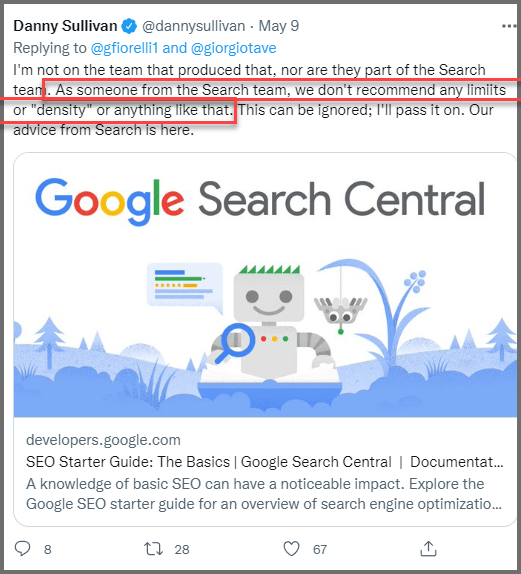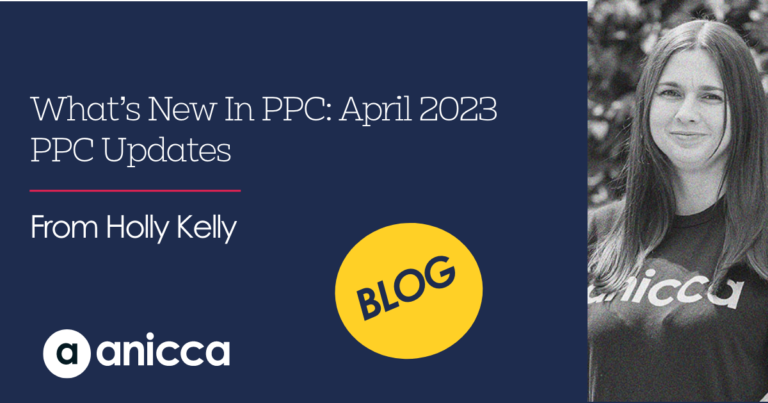Search & SEO News Roundup May 2022

Search is a diverse field, news from the industry is constant. We look back at some of the latest SEO news and updates to give some context.
During May 2022, these were some of the highlights:
- Google Chrome to Add Virtual Payment
- Huge Updates for Google Assistant
- Video Page Indexing Report Coming to Google Search Console
- Google’s Digital Marketing Certification Course Offers Advice on Keyword Density
- Review Content Should add New Information to Body of Knowledge
- Google Adds new Valid Page Metadata Help Document
Read on for the detail.
Google Chrome to Add Virtual Payment Cards
Posted May 13th on Techradar
This is really interesting news! Imagine the situation, you sign up to a service online and you choose to back out. There’s no credit agreement in place, but the service provider’s website doesn’t offer a way to cancel. The service provider didn’t accept PayPal, so you can’t simply cancel your subscription from there. What do you do?
Usually this leads to calling the company up, hoping to get through to a human who will then try to convince you not to cancel. It’s not an ideal place to be, we’ve all been there.
This is one reason why virtual credit and debit cards exist. If you use a privacy platform like Blur, or have your own virtual card plan (through a provider like Skrill) – you will already be aware of the benefits. Sign up for non-binding agreements on sites which don’t accept PayPal. If you don’t like the service, cancel the virtual card so it can no longer be charged. Essentially, a virtual card gives PayPal-like agreement cancellation functionality to sites which only accept credit or debit card input (which don’t accept PayPal).
You have to be careful though. If you accept a credit agreement and then cancel a virtual card, your credit rating may be impacted. Be that as it may, there are still many valid applications for virtual card usage.
Now that you know a bit more about virtual cards and why you might wish to use one, what is Google up to?
Google is working with card providers (such as Mastercard and Visa) to allow users to fill payment details with generated virtual cards. This may even mean that a separate virtual card provider would no longer be required (though we’re not quite sure on this finer point just yet).
This will make virtual payment card usage much more accessible to more users across the web, who might find the current complexity of deploying virtual cards a real headache. Keep in mind though, this new facility will initially be tested in the US. If testing is successful, we could see the adoption of this new technology (inside of Chrome browser) here in the UK.
Main takeaway: Google’s focus on enhancing security for online shoppers remains keen. Hopefully we’ll see technology like this rolled out to the UK eventually.
Huge Updates for Google Assistant
Posted May 12th on Techradar
Much of this news item revolves around new technology which will allow users to simply look at Google, rather than having to say “hey Google” – in order to initiate Google Assistant functionality.
That’s very interesting, but as SEO professionals, we have to read between the lines a little deeper. This is the really interesting part from Techradar’s article:
“Next, Google Assistant will understand much more natural conversations, like the ums, uhs, and likes we use in natural conversation, and even monitor the context of the request to better prompt you in case you can’t remember the right word to use.”
The question for SEO people is, how will this impact search and query (keyword) data? We know that when voice search was introduced, many more colloquial phrases were processed by users. Perhaps the largest example of this are all the “near me” queries.
If users will be speaking to Google in a more conversational way, does this mean that there will be even more colloquial phraseology contained within search-query data? That’s almost certain, though Google will be cleaning up the data before volumes are assigned to individual keywords (e.g: for Google Ads research and campaign creation). We highly doubt that the “ums” and “uhs” will make it into Google’s keyword data, that would be very messy for Google Ads users.
Main takeaway: Search data may include more colloquial phraseology in the future, than it currently does. Google will almost certainly take action as per keyword data, to keep such information clean for users creating Google Ads campaigns
Video Page Indexing Report Coming to Google Search Console
Posted May 12th on Search Engine Journal
An update from Google IO, which has spread across multiple search news outlets. As of now, Search Console comments on the schema appended to videos. Beyond that, there’s not much for webmasters to get their teeth stuck into.
All of that is set to change, as Google will be releasing a more detailed video analysis suite inside of Search Console. In the main, this will relate to checking the indexation of videos. You’ll also be able to check the pages where Google found each video. This could be useful, for example; if you found the same video on more than one page, you might uncover a video upload error where the same video was uploaded more than once (even though it’s only supposed to be on one page).
This report will also make video indexation analysis more granular. You might find an example of a page which indexes, whilst the video is not indexed. This will create more granular indexation work for those operating a video-based organic ranking strategy.
Main takeaway: Watch out for a new area within Search Console, which will allow for more detailed video indexation analysis.
Google’s Digital Marketing Certification Course Offers Advice on Keyword Density
Posted May 10th on SEO Roundtable
This update caused a real stir, with citations going viral across Twitter and all primary SEO news publishers. Essentially, Google’s Digital Marketing Certification Course offered the following advice:
“Write more than 300 words on your webpage. Your webpage is more likely to be ranked higher in search engine result pages if you write a higher volume of quality content. Keep your keyword density below an industry standard of 2%. This means that 2% of the words on the webpage or fewer should be target keywords.”
These are really old-school SEO tactics which, in recent times, Google has decried time and again. It wasn’t long before the tweets started. Going back as far as 2011, Matt Cutts (former head of Google’s anti-spam team) denounced keyword density as a prominent ranking factor.
Understandably, there was a public outcry when keyword density was included in a Google-official training course linked to SEO. When a certain tweeter raised the issue with Danny Sullivan (Google’s public search liaison), he was quick to contradict the course:

Following the thread, it seems possible that this particular course wasn’t officially endorsed by Google in any way. That being said, the course was offered through Corsera and gained wide coverage, from SEO news publishers such as Search Engine Land.
Main takeaway: Don’t worry too much about keyword density in SEO copy. It’s something which has been denounced by Googlers since 2011. If you see a ‘Google official’ course offering to teach you about keyword density, report it (such courses may not even be genuine).
Review Content Should add New Information to Body of Knowledge
Posted May 10th on SEO Roundtable
This post from SEO Roundtable examines an interesting question. Do product reviews add value to a webpage (usually a product page), above and beyond the value from the page’s main body content? In other words, does UGC (User Generated Content) help a product page to rank more prominently in Google’s results?
Unsurprisingly, the answer is variable. If a product review goes out of its way to “add new information to the body of knowledge” (thus enhancing reader’s understanding of the product), then yes, a user-generated review can help the product to rank more highly. It seems as if this required value-add usually comes from (though is not necessarily limited to) first-hand use of a specified product.
Twitter user Alan Kent had this to say:
“Another way to think about it is does the review contribute new information to the body of knowledge about the product? I could test a car tire using a machine instead of on my own car. But just repeating the specs from the tire website with different words adds nothing.”
Main takeaway: Reviews ‘for the sake of SEO’, don’t add much value to a product page. If the reviews are clearly authentic and add to the product’s body of knowledge, then they are worth something. This obviously means that incentivising real users to leave detailed product reviews is more effective than purchasing fake reviews online (or generating them, which is a black-hat SEO tactic).
Google Adds new Valid Page Metadata Help Document
Posted May 10th on Search Engine Land
Find the new documentation from Google here. This new document from Google tells many of us what we already know. There are certain Meta tags which are only valid within the <head> (HTML), and there are any number of tags which are invalid if placed within <head>.
Much more interesting is Google’s update to its title links help document. Within this document, a new section named “No clear main headline” has been created right near the end. This is the advice, directly from Google:
“When there’s more than one large, prominent headline, and it isn’t clear which text is the main headline for the page. For example, a page has two or more headlines that use the same styling or heading elements. If Google Search detects that there are multiple large, prominent headlines, it may use the first headline as the text for the title link. Consider ensuring that your main headline is distinctive from other text on a page and stands out as being the most prominent on the page (for example, using a larger font, putting the headline in the first visible <h1> element on the page, etc).”
This ties in with recent updates from Google (September 2021) concerning the diminished importance of the title tag (as a SERP snippet title control mechanism). Google will only utilise well-written title tags as SERP (Search Engine Ranking Position) snippet titles, and only if they seem strongly thematically bound with the content. When title tags and H1s agree, Google is more likely to adopt them as SERP snippet titles.
This also helps to reinforce why we ask for only one, single H1 per page in SEO, even though Google has stated that multiple H1s aren’t a parsing problem. Although Google can technically read more than one H1 per page (and this does not create indexation issues); algorithmic ranking issues (placing the page, as content within Google’s rankings) can still occur. Imagine reading a book with more than one title on the spine. What is it really about? One document should have one ‘main’ title, though other sub-titles (H2s, or in our book analogy – chapter titles) can still exist. The main title (the H1, analogous to the main title of a book) should be singular and prominent.
Main takeaway: Although page titles are said to have diminished SEO importance, it’s important to keep them consistent with your page’s singular (and prominent) H1 tag.
Impressed with our knowledge and coverage of search? Sign up for Leicester Digital Live and speak with us in person.



